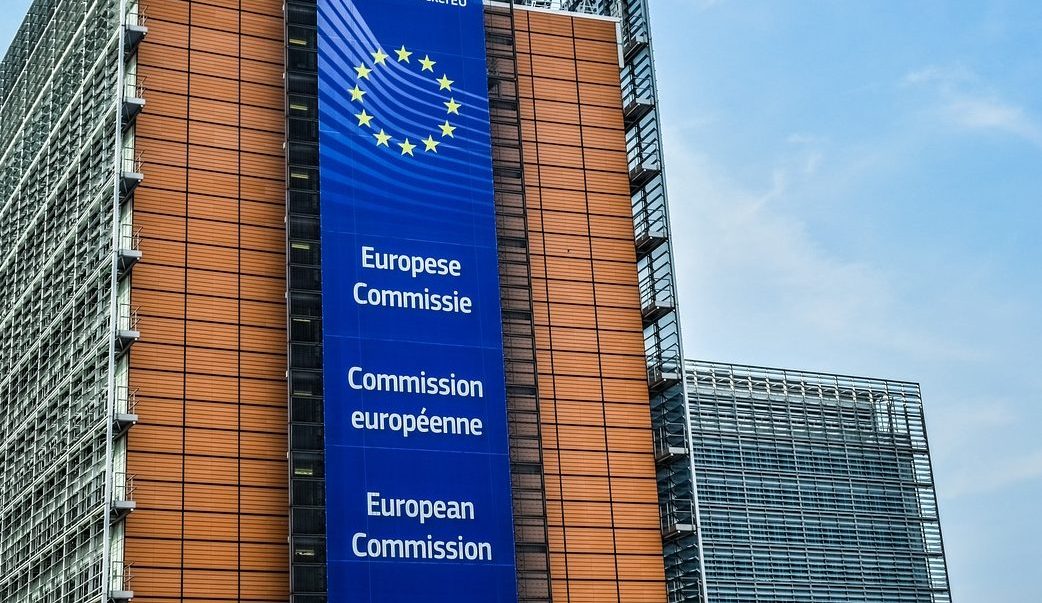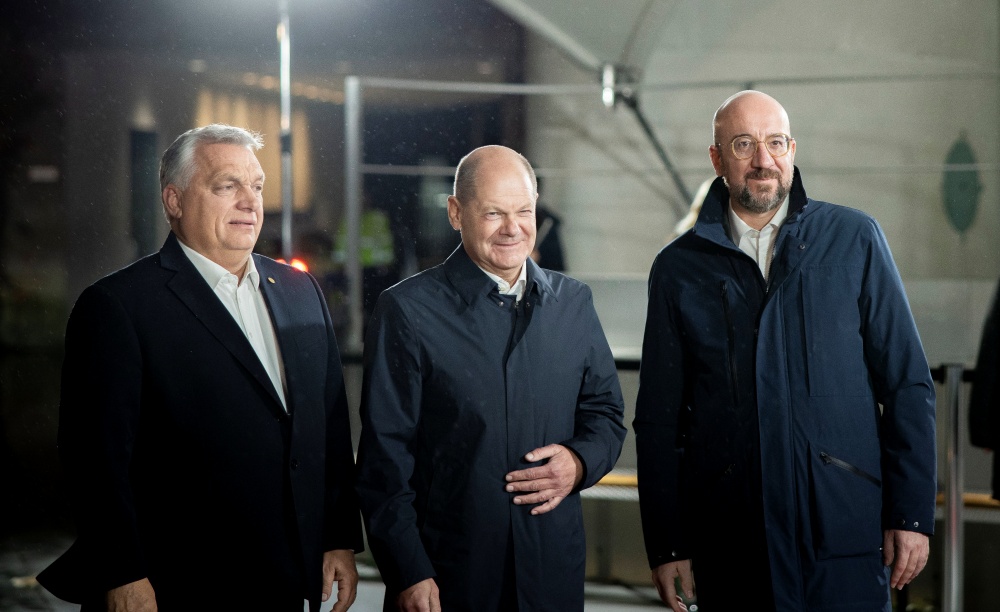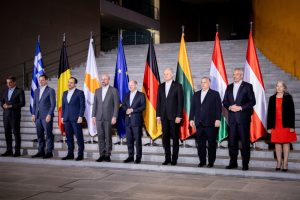
Member States have to decide on a new aid package for Ukraine worth EUR 50 billion by the end of the year.Continue reading

On Monday afternoon, Prime Minister Viktor Orbán traveled to Berlin, where Charles Michel, President of the European Council, organized a consultation on the European Union’s strategic agenda with the leaders of several EU Member States.
On Monday evening, German Chancellor Olaf Scholz held a working dinner in Berlin after a proposal by the President of the European Council. Following the European Political Community summit in early October, the president asked European leaders to continue the discussion on the future of the EU in small groups in European capitals.
Viktor Orbán was in a “small group” with Greek Prime Minister Kyriakos Mitsotakis, Austrian Chancellor Karl Nehammer, Belgian Prime Minister Alexander De Croo, Lithuanian President Gitanas Nausėda, and President of Cyprus Nikos Christodoulides, reports Mandiner. This combination is not a coincidence, as
the Hungarian Prime Minister has been joined by Belgians, Greeks, and Cypriots in trying to curb certain sanctions against Russia for various reasons,
and the Lithuanian Christian Democrat government has also occasionally singled itself out from the European mainstream.

Kyriakos Mitsotakis, Alexander De Croo, Nikos Christodoulidis, Charles Michel, Olaf Scholz, Gitanas Nausėda, Viktor Orbán, Karl Nehammer, and Thérése Blanchet, Secretary-General of the Council of the European Union (L-R). Photo: MTI/Miniszterelnöki Sajtóiroda/Fischer Zoltán
For Austria, the stakes of the meeting are “a paradigm shift in the field of migration,” the Austrian Chancellery announced in advance. The chancellor underlined that the European asylum system is “broken,” and that we cannot afford to lose control because the protection of the external borders is a matter of security for the whole EU. That is why he proposes that the EU should work with third countries to ensure that illegal migrants do not leave for Europe.
Nehammer also set a clear direction for European enlargement policy. He said that “an honest approach to enlargement is needed, with all potential candidates treated equally.” Referring to Ukraine, he said that “there should be no accelerated procedure for certain candidates.” He also indicated Austria’s support for the admission of the Western Balkan countries, saying “the EU enlargement process is a major incentive for reform and exports stability to our neighborhood. That is why we are and will remain supporters of the Western Balkans’ EU accession perspective.”
These positions are identical to the Hungarian government’s on migration, competitiveness, and enlargement policy.
Next year there will be a “change of leadership” in Europe: elections to the European Parliament will take place in the summer, a new European Commission will be formed by the Member States – under the Hungarian Presidency of the Council – and planning for the seven-year budget after 2027 will also begin. Many questions therefore have arisen about the extent of European integration and whether and how the European Union should be enlarged.
Stern magazine, quoting the chancellor’s office, writes: “The aim is not just to bring together EU heads of government who already share the same views.” This was not just a reference to Orbán- the group that met in Berlin yesterday has different ideas from the mainstream on the future of Europe for a variety of reasons. It is a reassuring sign that
Europe’s leading powers are now seeking to channel different opinions into the process of reforming the EU, rather than isolating the minority.
“The discussions should clarify how the 27 EU governments see the priorities for EU policy in the coming years, how enlargement would affect development policy, and the relationship between the net contributors and net beneficiaries of the EU. Meanwhile, it is important to talk not just about spending but also about EU revenues, Stern writes, referring to the idea of a possible EU common tax.
Via Mandiner, Featured image: MTI/Miniszterelnöki Sajtóiroda/Fischer Zoltán